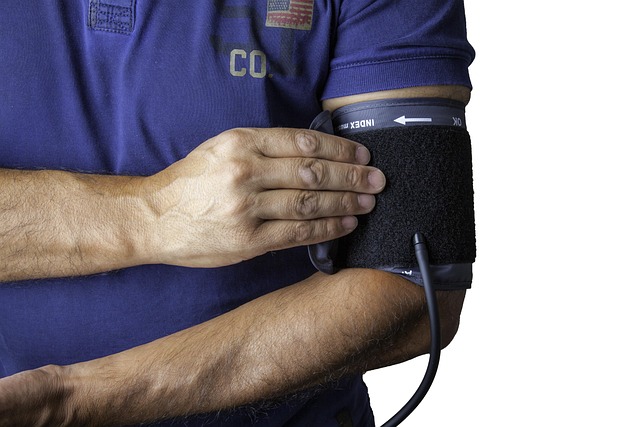The State of Pet Care: What’s Changed This Week
The American Veterinary Medical Association (AVMA) released new draft guidelines this week recommending earlier screening for kidney disease in senior cats—starting at age seven, rather than ten. The update reflects mounting clinical data suggesting earlier intervention can add years to feline quality of life. Meanwhile, the British Veterinary Association issued a bulletin warning about the rise of antibiotic-resistant skin infections in dogs, encouraging owners and vets to avoid overusing topical and oral antibiotics without lab tests.
In the consumer space, there’s a noticeable shift toward freeze-dried raw diets gaining traction for both dogs and cats. Brands like Stella & Chewy’s and Primal are leading the wave with limited-ingredient offerings, and more budget options are hitting shelves with simplified formulas. Nutritionists remain split on the long-term benefits, but demand is up—especially among pet parents looking to simplify feeding without going full raw.
Weather-wise, late spring has brought risky pollen spikes and temperature swings across much of the Midwest and Northeast. Vets are flagging an uptick in allergic flares—itching, paw chewing, and watery eyes are the telltale signs. Meanwhile, mosquito season is arriving early in the Southeast, prompting another round of reminders on heartworm prevention. Best move? Stay consistent with your flea, tick, and heartworm meds and book a seasonal wellness check if it’s been a while.
Health & Wellness Updates
Staying updated on your pet’s health is more than a once-a-year vet visit. This week, several key updates in pet nutrition and preventative care are making headlines.
Pet Food Alerts & Dietary Developments
It’s been a busy week for pet product safety:
- Recall Alert: A major brand of dry dog food has been voluntarily recalled due to potential salmonella contamination. Pet owners are advised to check batch numbers and consult with their vet.
- Supplement Spotlight: Veterinarians are recommending a new line of joint-support supplements for aging dogs. These are plant-based, with studies supporting improved mobility over 8 weeks.
- Dietary Guidelines: The Association of American Feed Control Officials released updated nutrient recommendations for growing kittens, focusing on proper taurine levels.
Tick & Flea Season: What You Need to Know
As warmer temperatures settle in across many regions, pest prevention is more important than ever:
- Northeast & Midwest: Reports show an earlier-than-usual tick surge. Regular tick checks and vet-approved preventatives are strongly encouraged.
- Southern States: Fleas remain active year-round. Pet owners should maintain consistent prevention and monitor for scratching or redness.
- Western Areas: Drier conditions are lowering flea populations slightly, but pockets of urban warmth still support infestations.
Tip: If you travel with your pet, update your pest prevention plan based on your destination’s outbreak risk.
Illness Trends in Pet Communities
Veterinary clinics are seeing a rise in specific health conditions across species:
- Canines: A contagious cough (not kennel cough) is spreading in community dog parks. Mild symptoms last a few days, but older dogs may need monitoring.
- Felines: Cases of feline upper respiratory viruses are increasing in multi-cat households. Consider air purifiers and more space between food and litter areas.
- General Alert: Both cats and dogs are showing signs of seasonal allergies—especially itchy skin and watery eyes.
Keep an eye on your pet’s behavior and don’t hesitate to contact your vet if something seems off. Staying proactive makes a big difference.
Tech & Innovation in Pet Care
Technology continues to reshape how we care for our pets, offering smarter ways to track health, manage routines, and understand behavior.
Smarter Devices for Everyday Use
From daily feeding to monitoring physical activity, the newest pet tech devices are designed to simplify care and improve pet well-being.
Top Devices Gaining Momentum:
- GPS Trackers: Lightweight and accurate, modern trackers allow real-time location tracking, so pets never stay lost for long.
- Smart Feeders: Programmable feeding systems that dispense the right portion at the right time—even when you’re away.
- Health Monitors: Wearable collars and devices now track activity, sleep, heart rate, and more, helping detect early signs of health concerns.
Apps That Keep It All Together
Managing pet care is easier when everything is in one place. Apps are filling this gap by helping owners stay organized and consistent.
Useful Features Include:
- Vet appointment scheduling and vaccination reminders
- Digital health and vaccination records
- Nutrition trackers and personalized diet logs
AI Insights into Pet Behavior
AI-powered tools are now offering predictive insights into pet behavior and emotional health. These tools help owners catch signs of anxiety, boredom, or stress before they escalate.
Emerging AI Innovations:
- Behavior tracking via camera and audio analysis
- Tailored training tips based on observed patterns
- Compatibility with smart devices for real-time alerts
Want to take a deeper dive? Read this in-depth article: How Technology is Transforming Modern Pet Care Practices
Behavioral Insights & Training News
Pet behavior shifts fast when routines do. With back-to-school mornings and holiday travel in full swing, trainers are seeing a spike in separation issues and restlessness—especially in dogs that thrived on summer flexibility. The consensus from top behaviorists? Start small. Increased alone time needs to be introduced gradually. Reinforce with structure at home—predictable meal times, exercise, downtime.
Surprise enrichment is also trending. Puzzle feeders, scent games, and DIY agility setups help fight boredom. Cats especially benefit from vertical spaces and hide-and-seek games. For dogs, quick five-minute command refreshers sprinkled throughout the day keep their brains engaged without overloading them.
New tools are helping too: from smart treat dispensers with camera feeds to apps that track emotional triggers in pets. But no tech replaces attention. When owners stay out too long or change schedules overnight, animals notice—and act out. Routine is comfort. So as calendars shift, so should your pet’s daily rhythm.
Bottom line: prevent the fallout by staying ahead of the transition. Structure and play aren’t just for kids—they’re what keep your pets balanced.
Legislation & Policy Updates
Several legislative shifts are making waves this week, particularly for pet owners navigating housing, travel, and adoption protocols. First up, a handful of municipalities—including parts of Oregon and New York—have passed legislation restricting the sale of pets from breeders in favor of encouraging adoptions from shelters and rescues. The goal? Reduce euthanasia rates and curb unethical breeding practices. If you’re planning to adopt in these areas, expect more streamlined adoption events and incentives like waived fees.
In housing, both New Jersey and California are evaluating bills that would limit landlords’ ability to outright ban pets, especially in rent-controlled units. While not yet law, the trend points toward more pet-friendly housing protections—welcome news for renters tired of jumping through hoops just to keep their animals at home.
On the travel front, the Department of Transportation in the U.S. wrapped up a comment period for updated airline regulations addressing emotional support animals. Airlines may be required to better define what qualifies as a support animal while preserving space for legitimate service companions. If you travel regularly with your pet, expect new documentation standards but also clearer rules that reduce chaos at the gate.
Keep tabs on local ordinances, especially if you’re relocating or adopting soon—the fine print around pet ownership is evolving fast.
Spotlight: Best Practices for Responsible Pet Ownership
If there’s one thing pet owners tend to put off, it’s the basics. Annual vet checkups aren’t just optional—they’re essential. A once-a-year visit can catch the stuff you won’t see: hidden infections, early signs of arthritis, even dental disease. Speaking of which, dental care isn’t just about bad breath. Poor oral hygiene leads to real problems: gum disease, pain, and even infections that spread to the heart or kidneys. Most vets now recommend brushing your pet’s teeth a few times a week and adding dental chews to the rotation.
Grooming is often treated as cosmetic, but it’s not just about clean fur. Matting can cut off circulation. Dirty ears can turn into full-blown infections. Skipping nail trims? That messes with posture and joint health over time. Even shorthaired pets benefit from monthly maintenance—think coat checks, skin inspections, and a thorough brush-out to reduce shedding.
From the community this week: pet owners are raving about calendar apps that send reminders for grooming, meds, and appointments. Others are leaning into mobile grooming vans for convenience. And one particularly clever idea from a Boston-based cat owner? Swapping out regular treats for vet-approved dental snacks, turning care into a built-in habit.
Final Thought
What to Expect Next Week
Looking ahead, next week’s headlines will dig into:
- Upcoming spring health concerns
- How fluctuating temperatures affect pet allergies and coat care
- The latest ingredient updates in pet food trends
- What to look for—and avoid—on your labels
- Special report on aging pets
- Tips for keeping senior pets comfortable, healthy, and happy
Stay tuned—each update is designed to help you make better, faster decisions that benefit both you and your pet.
Why Weekly Awareness Matters
Your pet’s health is always evolving—and so is the world around them. By staying updated weekly:
- You catch early signs of wider health or safety issues
- You stay informed on recalls, regulation changes, and local alerts
- You gain insight into proactive care—not just reactive treatments
In short, a few minutes each week can lead to happier, healthier years with your pet. It’s not just news—it’s peace of mind.




